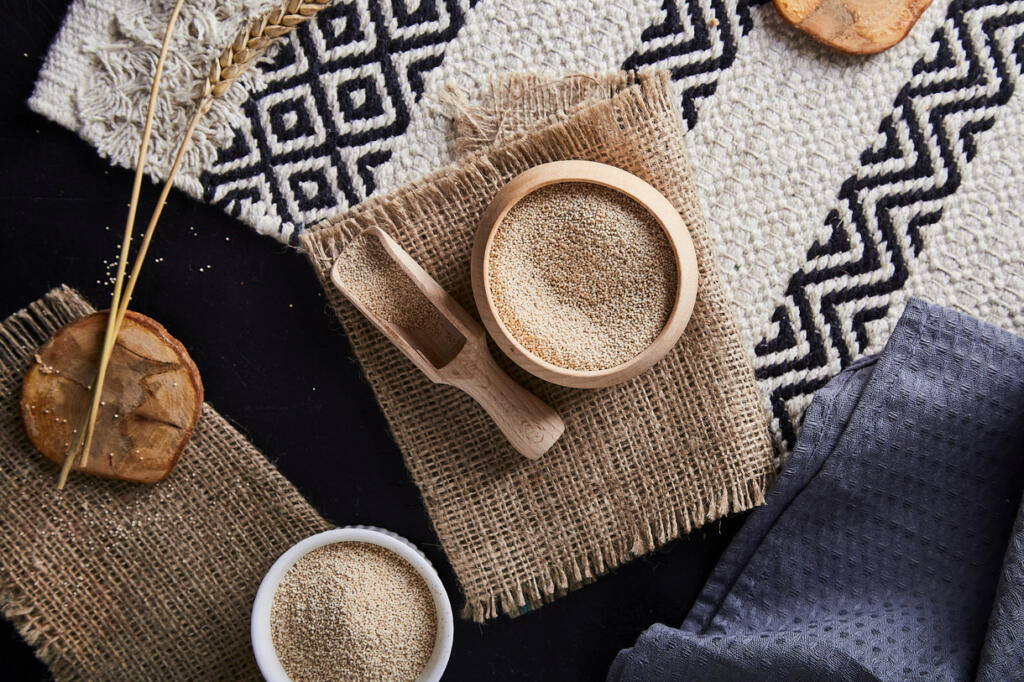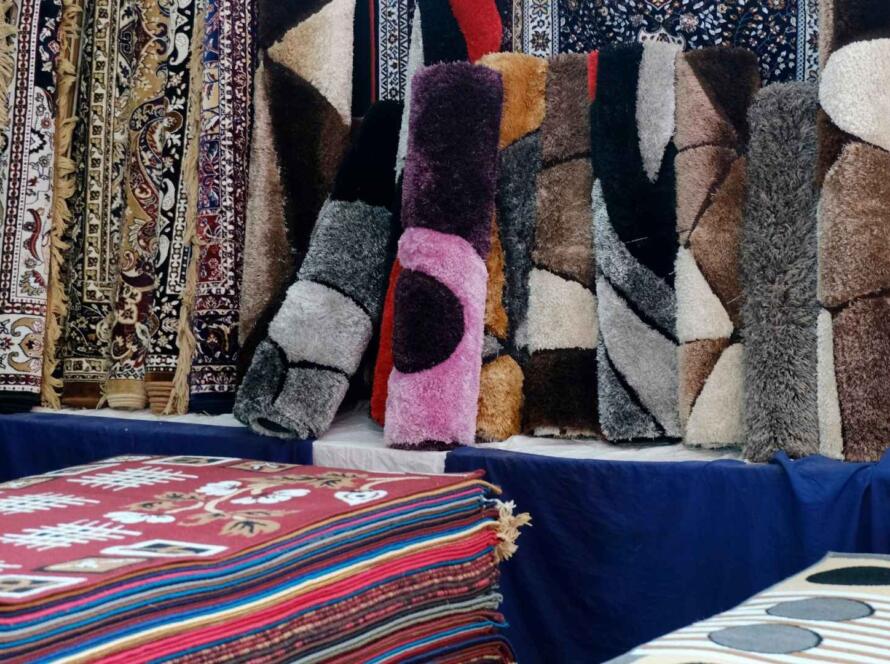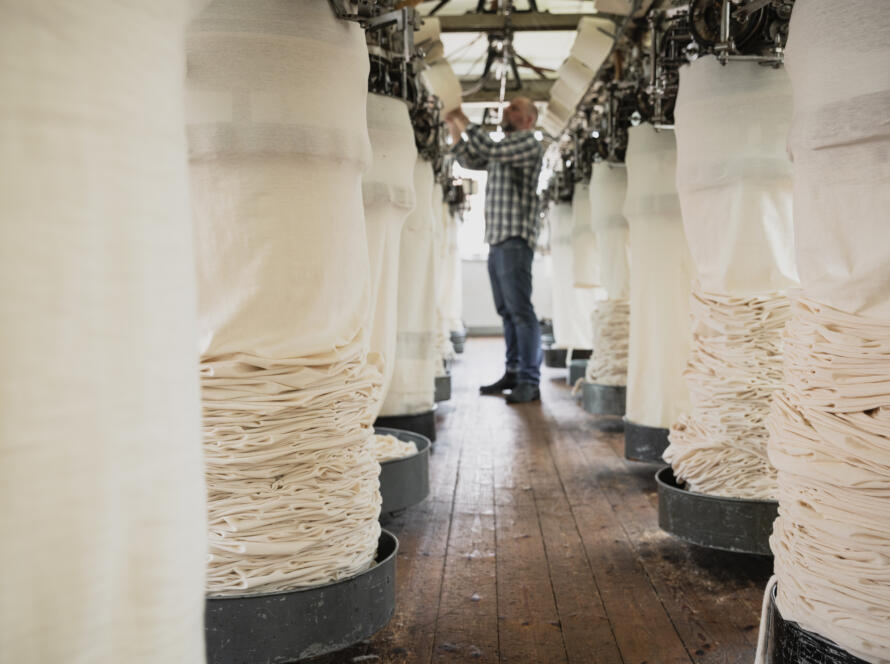India has long been synonymous with the art of carpet weaving, renowned for its vibrant designs, intricate patterns, and timeless craftsmanship. From the regal carpets of Mughal India to the traditional hand-knotted masterpieces, Indian carpets have always held a special place in homes around the world. However, as global consumer preferences evolve, the demand for eco-friendly and sustainable products, including carpets, has grown exponentially.
The move toward sustainability is no longer just an option but a necessity in today’s global marketplace. More than ever, consumers are aware of the environmental impact of the products they purchase and are actively seeking alternatives that align with their values. In the world of carpets, this translates into a growing demand for sustainable carpets that not only look beautiful but are also produced in an environmentally responsible manner.
For Indian carpet manufacturers, this shift offers a unique opportunity to combine their time-honored craftsmanship with modern sustainable techniques, creating products that meet the needs of today’s conscious consumers.
The Shift Toward Sustainable Carpets
Traditionally, carpet manufacturing has relied heavily on synthetic materials such as nylon, polyester, and acrylic, which are derived from petroleum-based products. While these materials offered durability and ease of production, they also contributed to environmental degradation due to their non-biodegradable nature.
Synthetic carpets, when discarded, often end up in landfills where they take decades or even centuries to decompose, releasing harmful chemicals into the environment in the process.
Recognizing the environmental impact of these practices, Indian carpet manufacturers have started shifting towards more sustainable alternatives. Natural fibers such as wool, cotton, and jute are now being used extensively in carpet production.
For instance, Shivalika Rugs, an esteemed name in Indian carpet manufacturing, embraces these sustainable shifts without compromising on quality. By integrating age-old craftsmanship with modern technologies, We combines natural fibers like wool and jute with state-of-the-art production methods to reduce waste and environmental impact.
This focus on sustainability, coupled with their large-scale, fully integrated facility in Panipat, allows them to handle every aspect of the production process in an eco-friendly manner.
Sustainable Practices Adopted by Indian Carpet Manufacturers
Indian carpet manufacturers are adopting several sustainable practices to meet their environmental goals. These practices not only reduce their ecological impact but also improve the overall quality and appeal of their products. Some of the most common sustainable techniques include:
Use of Eco-Friendly Materials
- Organic Fibers: Indian manufacturers are increasingly using organic fibers such as wool, cotton, and jute. These materials are naturally sourced, renewable, and biodegradable, making them ideal for producing sustainable carpets.
- Recycled Materials: Some manufacturers have begun incorporating recycled materials into their carpet designs, such as using recycled wool or repurposed cotton to create new products. This reduces waste and promotes the circular economy, where materials are reused rather than discarded
Water and Energy Conservation
- Carpet manufacturing, especially during the dyeing and washing process, can be water-intensive. Indian manufacturers are adopting water-efficient techniques, such as recycling water during production and using advanced technology that reduces overall water usage
- To lower energy consumption, manufacturers are also investing in energy-efficient machinery and utilizing renewable energy sources such as solar and wind power in their production facilities. These practices not only reduce costs but also minimize the carbon footprint of their operations.
Non-Toxic Dyes
- Traditional carpet manufacturing often involves the use of chemical dyes, which can release harmful pollutants into the environment. Indian carpet manufacturers are now turning to natural dyes made from plant-based sources like indigo, turmeric, and henna.
- These non-toxic dyes are not only safer for the environment but also produce vibrant, long-lasting colors that are free from harmful chemicals.
Waste Reduction and Recycling
- Reducing waste is a key focus for sustainable carpet manufacturing. Many manufacturers are finding innovative ways to repurpose waste materials, such as using leftover yarn and fabric scraps to create new products.
- Additionally, manufacturers are implementing recycling programs to minimize waste during the production process and ensure that as much material as possible is reused rather than discarded.
Certifications and Standards in Sustainable Carpet Manufacturing.
To ensure their products meet internationally recognized standards for sustainability, Indian carpet manufacturers are increasingly seeking certifications that demonstrate their commitment to eco-friendly practices. These certifications not only assure consumers of the product’s quality and sustainability but also help manufacturers adhere to best practices in production. Some of the most important certifications in sustainable carpet manufacturing include:
- Global Organic Textile Standard (GOTS): This certification ensures that carpets are made from organic fibers and that the entire production process meets strict environmental and social criteria.
- Green Label Plus Certification: Awarded to carpets that meet rigorous standards for indoor air quality, free from harmful emissions.
- ISO 14001 Environmental Management System: This international standard helps manufacturers manage their environmental responsibilities in a systematic way.
Shivalika Rugs adheres to such high standards of environmental responsibility, ensuring their products align with internationally recognized certifications. By integrating these certifications into their operational philosophy, Shivalika continues to build a legacy of trust and quality.

How Indian Carpets Are Combining Tradition with Sustainability
Indian carpet manufacturers have a rich history of traditional craftsmanship, and they are now finding ways to incorporate sustainability into their age-old techniques. One of the most significant changes is the revival of ancient weaving methods that use sustainable materials and processes.
For example, hand-knotting and hand-tufting are techniques that require minimal energy and water compared to machine-made carpets, making them inherently more sustainable.
Manufacturers leverage this rich heritage of craftsmanship, blending it with sustainable practices. Their dedication to maintaining authenticity while adopting green methods ensures that each carpet not only tells a story through its design but also contributes positively to environmental conservation.
Benefits of Sustainable Carpets for Consumers
For consumers, choosing sustainable carpets offers numerous benefits beyond just environmental preservation. Some of the key advantages include:
- Durability and Longevity: Sustainable carpets made from natural fibers like wool and jute are known for their durability. These materials can withstand heavy foot traffic and maintain their appearance for years, providing long-term value for consumers.
- Eco-Friendly Impact: By choosing sustainable carpets, consumers contribute to reducing the carbon footprint associated with production and waste. Natural fibers are biodegradable, meaning they won’t contribute to landfill pollution when the carpet reaches the end of its life.
- Health Benefits: Carpets made from natural, non-toxic materials improve indoor air quality and create a healthier living environment. Unlike synthetic carpets, which can release harmful chemicals into the air, sustainable carpets are free from volatile organic compounds (VOCs), making them safer for families and pets.
- Supporting Ethical Practices: Purchasing sustainable carpets supports responsible manufacturing and helps promote fair trade practices. Consumers can feel good knowing that their purchase is contributing to the well-being of artisans and supporting environmentally conscious businesses.
Challenges Faced by Indian Carpet Manufacturers
While the shift toward sustainability offers many benefits, Indian carpet manufacturers also face several challenges in adopting eco-friendly practices:
- High Initial Investment: Transitioning to sustainable production methods often requires significant investment in new technology, machinery, and materials. For smaller manufacturers, these costs can be prohibitive.
- Education and Training: Artisans and workers need to be educated and trained in sustainable techniques, which can be time-consuming and costly. However, with proper training, these techniques can lead to higher-quality products and long-term cost savings.
- Competition with Low-Cost Synthetic Carpets: Sustainable carpets are often more expensive to produce than their synthetic counterparts, making it difficult for Indian manufacturers to compete with cheaper, mass-produced carpets in the global market. However, as consumer demand for eco-friendly products grows, the market for sustainable carpets is expected to expand.
The Future of Sustainable Carpets in India
The future of sustainable carpet manufacturing in India looks promising. As awareness of environmental issues continues to rise, more consumers are likely to prioritize sustainability in their purchasing decisions. Indian carpet manufacturers are well-positioned to lead the global shift toward eco-friendly carpets, thanks to their deep-rooted traditions and commitment to quality.
Government initiatives promoting sustainable practices, such as subsidies for green technology and stricter environmental regulations, will further encourage manufacturers to adopt eco-friendly methods. In the coming years, we can expect to see more Indian carpet manufacturers achieving international certifications, expanding their use of natural fibers, and investing in renewable energy sources to reduce their environmental impact.
Conclusion
Indian carpet manufacturers are at the forefront of the movement toward sustainability in the global carpet industry. By combining traditional craftsmanship with modern sustainable techniques, manufacturers like Shivalika Rugs are creating carpets that are not only beautiful but also environmentally responsible. As consumer awareness of sustainability continues to grow, Indian manufacturers will play a crucial role in leading the way toward a greener future. Sustainable carpets offer long-term value, health benefits, and support for ethical practices, making them the ideal choice for consumers looking to make eco-conscious decisions.




